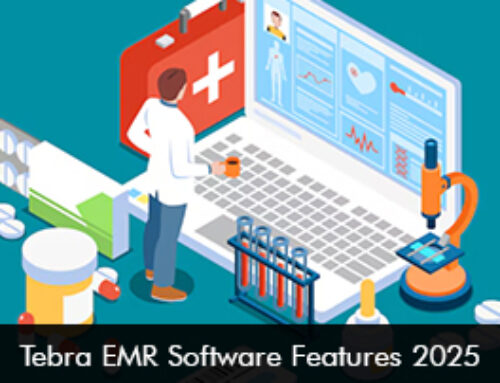As mental health care shifts toward more customized treatment models, EMR and EHR systems have emerged as powerful tools for cognitive therapy. Beyond recordkeeping, these solutions offer dynamic features that help clinicians understand the full picture of a patient’s experience. With AI-enhanced data and flexible therapy planning tools, practitioners are now better equipped to deliver compassionate, individualized care with real-time support at their fingertips.
Key Features Enhancing Personalized Cognitive Therapy
-
Comprehensive Patient Profiles
- EMR software consolidates patient history, previous treatments, and progress notes, providing therapists with a holistic view of the patient’s journey.
- This comprehensive data aids in identifying patterns and tailoring therapy sessions accordingly.
-
AI-Powered Insights
- Modern EMR systems incorporate AI to analyze patient data, offering predictive analytics that can forecast potential challenges or relapses.
- These insights enable therapists to proactively adjust treatment plans, enhancing therapy effectiveness.
-
Customizable Treatment Plans
- EMR software allows for the creation of individualized therapy plans, accommodating specific patient needs and preferences.
- Therapists can modify these plans in real-time, ensuring adaptability and responsiveness to patient progress.
-
Integrated Telehealth Capabilities
- With built-in telehealth features, EMR systems facilitate remote therapy sessions, expanding access to care for patients in diverse locations.
- This integration ensures continuity of care, even when in-person sessions are not feasible.
-
Secure Communication Channels
- EMR software provides encrypted messaging platforms, allowing for confidential communication between therapists and patients.
- This feature fosters trust and encourages open dialogue, essential components of effective cognitive therapy.
Latest Developments in EMR Software for Cognitive Therapy
In 2025, Electronic Medical Records (EMR) software has seen significant advancements, particularly in supporting personalized cognitive therapy plans:
- AI-Driven Personalization: Modern EMR systems now leverage artificial intelligence to auto-suggest diagnoses, recommend treatment plans, and flag potential drug interactions. This AI integration enhances the precision of cognitive therapy by tailoring interventions to individual patient needs.
- Integration with Wearable Technology: EMRs are increasingly compatible with wearable devices, allowing for real-time monitoring of patients’ physiological data. This integration provides therapists with continuous insights into patients’ mental health status, facilitating timely adjustments to therapy plans.
- Enhanced Interoperability: Improved data sharing capabilities enable seamless communication between different healthcare providers. This ensures that cognitive therapists have access to comprehensive patient histories, promoting more informed and cohesive treatment strategies.
- Telehealth Expansion: The incorporation of telehealth functionalities within EMR software has expanded access to cognitive therapy services, especially for patients in remote or underserved areas. This development ensures continuity of care and flexibility in therapy delivery.
Top 5 EMR Software for Cognitive Therapy
-
SimplePractice
SimplePractice stands out for its user-friendly interface and comprehensive features tailored for mental health professionals. It offers customizable therapy notes, integrated telehealth, and robust scheduling tools. The platform’s client portal enhances patient engagement, allowing for seamless communication and document sharing. Its mobile app ensures therapists can manage their practice on-the-go.
-
Valant EHR Suite
Designed specifically for behavioral health, Valant EHR Suite provides tools that streamline documentation, billing, and reporting. Its outcome measurement tools assist in tracking patient progress, while its integrated telehealth ensures flexibility in service delivery. The platform’s analytics capabilities support data-driven decision-making in therapy planning.
-
TherapyNotes
TherapyNotes offers a comprehensive solution for mental health professionals, featuring intuitive note-taking, scheduling, and billing functionalities. Its secure client portal facilitates communication and document exchange. The platform’s robust reporting tools aid in monitoring practice performance and patient outcomes.
-
DrChrono
DrChrono’s EMR platform is known for its customizable templates and integrated billing system. It supports e-prescribing and offers a patient portal for enhanced engagement. The platform’s mobile compatibility ensures therapists can access patient information and manage appointments from anywhere.
- Psykdesk
Psykdesk is a cloud-based EMR solution tailored for behavioral health practices. It offers features like appointment scheduling, document management, and e-prescribing. The platform’s user-friendly interface simplifies administrative tasks, allowing therapists to focus more on patient care.







